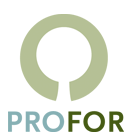In the third in an ongoing series on benefit sharing from forest conservation, the Program on Forests (PROFOR) highlights the case of revenue sharing from a protected area in Tanzania.
The project targets the killing of monkeys and illegal collection of firewood, seeking to replace such activities with revenue from park entrance fees.
 11 September 2012: The World Bank’s Program on Forests (PROFOR) has highlighted the case of revenue sharing from a protected area in Tanzania, as the third in an ongoing series of stories on benefit-sharing from forest conservation, titled “What it Takes.” Implemented by CARE International, the project in Zanzibar paid local communities to refrain from killing monkeys and collecting wood illegally.
11 September 2012: The World Bank’s Program on Forests (PROFOR) has highlighted the case of revenue sharing from a protected area in Tanzania, as the third in an ongoing series of stories on benefit-sharing from forest conservation, titled “What it Takes.” Implemented by CARE International, the project in Zanzibar paid local communities to refrain from killing monkeys and collecting wood illegally.
Proceeds from park entrance fees were shared with local farmers and community development funds, with over TZS4.6 million (almost US$3,000) given to the villages in the first year of payments. Over the course of the project, communities used the funds to build schools and mosques and invest in water and electrical infrastructure.
According to the PROFOR story, success factors included transparent governance, clearly defined roles and responsibilities, strong bargaining power among local stakeholders and the provision of practical alternatives to unsustainable livelihood options. Future challenges include clarifying land tenure and use rights, addressing concerns over how entrance fees are paid, and auditing financial flows.
The project was implemented in collaboration with the Government of Tanzania, Department of Commercial Crops, Fruits and Forestry (DCCFF), officials from the Jozani Chwaka Bay National Park and a local NGO. [Publication: What It Takes, Part III: Sharing Revenues from Conservation]